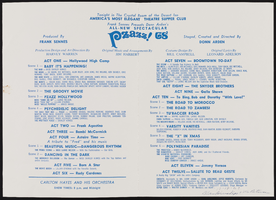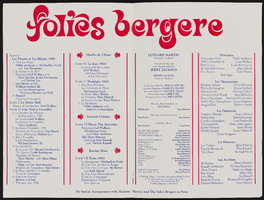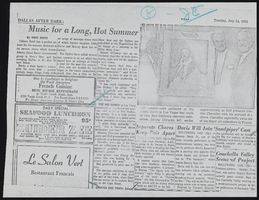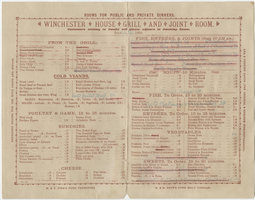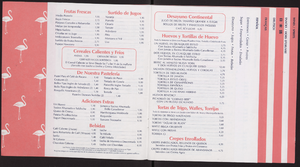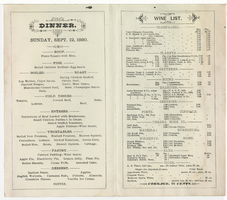Search the Special Collections and Archives Portal
Search Results
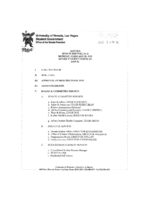
Meeting minutes for Consolidated Student Senate University of Nevada, Las Vegas, February 28, 1995
Date
1995-02-28
Archival Collection
Description
Includes meeting agenda and minutes. CSUN Session 25 Meeting Minutes and Agendas.
Text

Meeting minutes for Consolidated Student Senate University of Nevada, Las Vegas, October 18, 1999
Date
1999-10-18
Archival Collection
Description
Includes meeting agenda and minutes. CSUN Session 29 Meeting Minutes and Agendas.
Text

Transcript of interview with Unite Here Bartenders Union Local 165 by Claytee D. White, September 29, 2014
Date
2014-09-29
Archival Collection
Description
Rosemary Christian, David Peinado, Dale Pryor, Virginia Velasquez, and Greg Venezia are among the elite of Las Vegas bartenders. The bars that they work and have worked span from one end of the Strip to the other; the original Aladdin, The Silver Slipper, O’Sheas, the Monte Carlo, Slots ‘A’ Fun, the Luxor, Caesars Palace, and the Rio. Their stories take us from family ownership to corporate. Families allowed all casino bars to be set up in an identical fashion, each type of glass and each liquor bottle was set in the same location all over town. A bartender could walk into a new location and start work without a moment’s hesitation. Corporate thinking changed that need for an outside bartender to work in random places. When women began in this lucrative field, tension occurred but lessened as men recognized that women could lug beer kegs with the best of them and they could easily calm down a drunkard using her womanly touch. The thread throughout this roundtable discussion sews together the exceptional lives of these five bartenders with their membership in UNITE HERE Bartenders Union Local 165. In conjunction with the Culinary Workers Union Local 226, insurance, wages, job satisfaction, uniforms, giving back to the Las Vegas community, and many other benefits occur, seemingly, without effort. “We are skilled craftsmen.” “We have security working for the union and health benefits and a pension. So it's something that's long term. It's longevity working for a union. You know you always have someone backing you.”
Text
Pagination
Refine my results
Content Type
Creator or Contributor
Subject
Archival Collection
Digital Project
Resource Type
Year
Material Type
Place
Language
Records Classification

